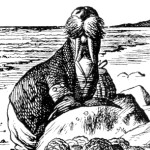Renowned and beloved film critic Roger Ebert passed away today after a long battle with cancer. From his long-time employers and friend at the Chicago Sun-Times:
My newspaper job,” he said in 2005, “is my identity.”
But as always with Roger Ebert, that was being too modest. He was a rennaissance man whose genius was based on film but by no means limited to it, a great soul who had extraordinary impact on his profession and the world around him.
“‘Kindness’ covers all of my political beliefs,” he wrote, at the end of his memoirs. “No need to spell them out. I believe that if, at the end, according to our abilities, we have done something to make others a little happier, and something to make ourselves a little happier, that is about the best we can do. To make others less happy is a crime. To make ourselves unhapy is where all crime starts. We must try to contribute joy to the world. That is true no matter what our problems, our health, our circumstances. We must try. I didn’t always know this and am happy I lived long enough to find it out.””
I’m not sure I understand or agree with all of that. Actually, as I think back on his extraordinarily prolific life and on the many hours I spent reading through his many books, essays, blog posts, and reviews, I’m not even sure I can say I agreed with him most of the time. But when I did, it gave me confidence. And when I didn’t, that very disagreement served as a challenge for me to reconsider; to come to a better understanding of both his view, and of my own.
Many words will be written on the man and on his influence in the coming days. And I look forward to the personal stories and humorous anecdotes that will bubble up from those who knew him personally and professionally. Yet nearly all of them will be written less clearly and far less eloquently than the pieces he submitted to his Sun-Times editors each and every week — a reminder not only of why he exerted such influence over his industry, but of his extraordinary gifts as a writer and of the hard work that earned him such an exalted position in the first place.
I came comparatively late to Mr. Ebert’s work, and his TV show is more of a historical event for me than a lived experience. But I can honestly say that he made me happier; he did it with regularity, and it was much more than “a little.” I’m sure there are thousands and thousands more like me.
To me, that will be his legacy. And if I understand his words up there correctly, it’s the only one he’d really have wanted, anyway.
Attribution(s): Large photos courtesy of Getty Images, which allows the use of certain images “as long as the photo is not used for commercial purposes (meaning in an advertisement or in any way intended to sell a product, raise money, or promote or endorse something);” “Happy Roger” via s_bukley/Shutterstock.com.












